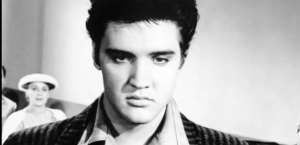Introduction
In the rebellious realm of musical anthems, Elvis Presley’s “I Want To Be Free” emerges as a liberation anthem—a sonic exploration that encapsulates the yearning for independence and the emotional expression of breaking free. This iconic anthem is not just a song; it’s a soulful journey marked by Elvis’s vocals and the unforgettable musical rebellion found in each note. Join us as we unwrap the liberation anthem, delve into the emotional resonance, and explore the enduring appeal of “I Want To Be Free.”
Unveiling “I Want To Be Free”
“I Want To Be Free” stands as a testament to Elvis Presley’s ability to express a desire for liberation through music. This anthem is more than just a tune; it’s a melodic journey that transcends time, carrying with it the emotional liberation of Elvis’s vocals and the timeless rebellion that defines the quest for freedom.
Elvis Presley’s Musical Rebellion
Elvis’s rendition of “I Want To Be Free” is a musical rebellion—an exploration of breaking free from constraints that showcases his vocal mastery. The emotional resonance in his delivery transforms the song into an iconic liberation anthem, inviting listeners to immerse themselves in the yearning for independence.
Iconic Freedom Quest
Released during a period of cultural change, “I Want To Be Free” became synonymous with an iconic freedom quest. The energetic instrumentation, coupled with Elvis’s distinctive vocals, transports listeners to a time when music played a crucial role in expressing the desire for personal and societal liberation.
Unshackling Constraints and Emotional Liberation
The song’s theme of unshackling constraints is elevated by Elvis’s emotional liberation. Every note and lyric contribute to a sense of rebellion, making “I Want To Be Free” a timeless rendition that resonates with anyone who has experienced the fervor of wanting to break free from societal or personal limitations.
